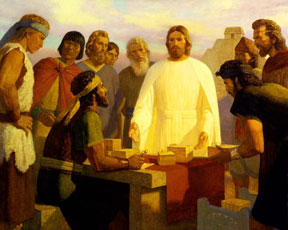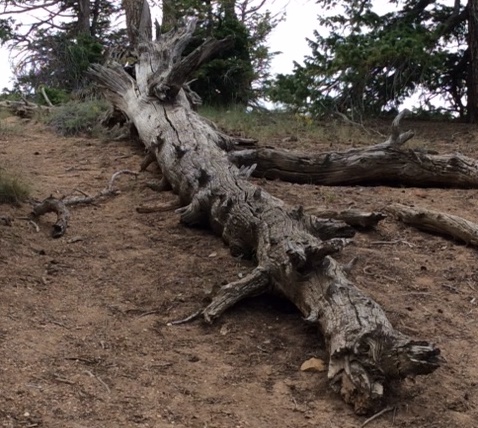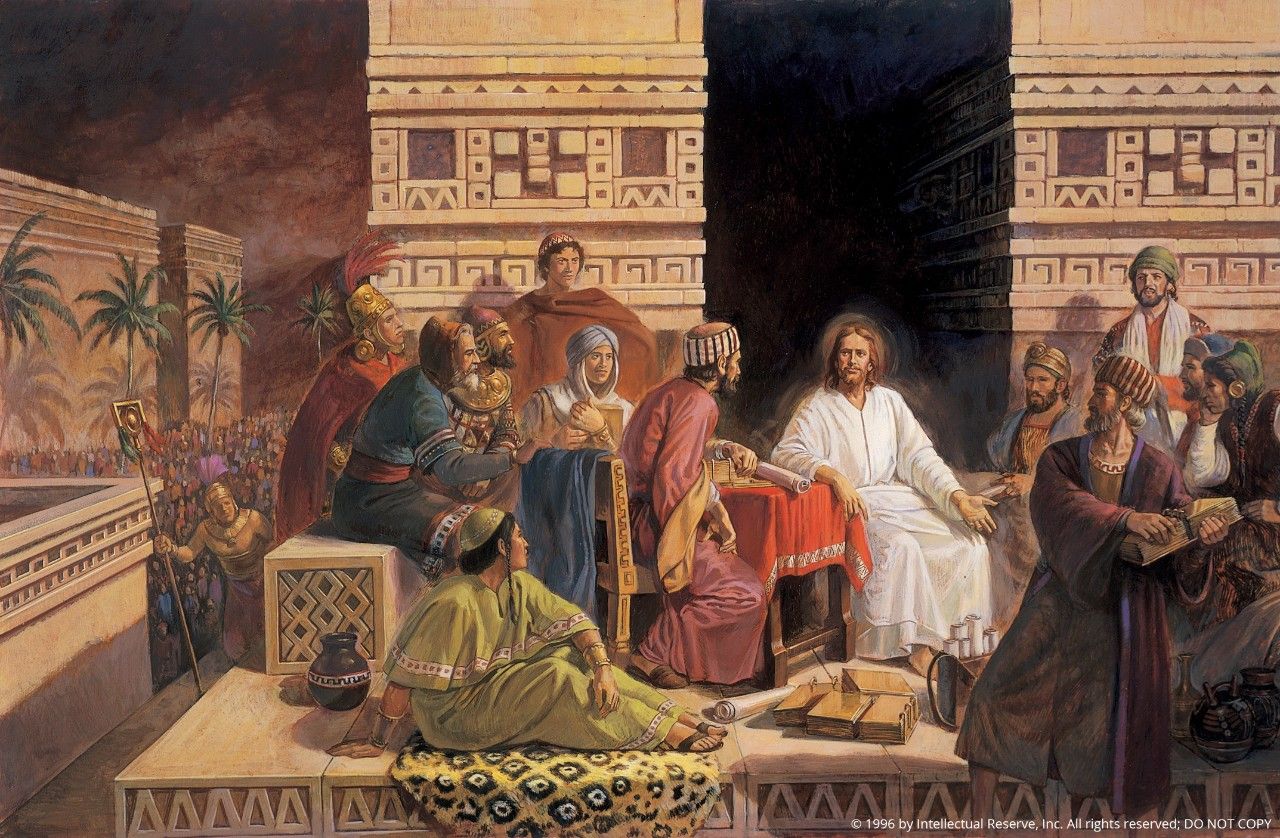To accompany your Come Follow Me study for October 14-20
You will enjoy the following videos related to this week’s reading:
You may wish to consult the following commentary from the Book of Mormon Institute Student Manual:
- Chapter 44: 3 Nephi 20–22 (churchofjesuschrist.org)
- Chapter 45: 3 Nephi 23–26 (churchofjesuschrist.org)
If you would like a Kahoot game related to this material which you could use for personal study or use with your family or your class, click here: https://create.kahoot.it/share/3-nephi-20-26/fc8e5be5-e74b-41e5-836f-7e8c385cb234. To use it with a group, after clicking on this link, you will need to log into Kahoot, creating a free account if you have not done so previously, then click on the blue “Host Live” button or the gray “Assign” button, depending on how you wish to use the Kahoot. Some of the Kahoot questions may presuppose that the player has read through the suggested answers to the following Points to Ponder and at least has browsed the Institute student manual as well.
Points to Ponder in 3 Nephi
1. What was so unusual about the sacrament service in chapter 20, besides the fact that it was the second time in two days that they had had one?

2. Why would the Savior have quoted so much from Isaiah, Micah, and Malachi rather than simply teach with his own words? Why would He have singled out Isaiah’s writings for special attention? (20:11; 23:1)
3. When Moses prophesied, “A prophet shall the Lord your God raise up unto you of your brethren, like unto me,” he was speaking of
a. Jesus Christ
b. Joseph Smith
c. Joseph who was sold into Egypt
d. A future prophet who will preside over the Church at the time of the Second Coming

4. What do we learn from this week’s reading about each of the following subjects? What do we still not know about these matters?
a. The nature of God’s covenant with the house of Israel
b. The scattering of Israel
c. The identity and location of the lost ten tribes
d. The identity of the Gentiles and their relationship to the house of Israel
e. The two major aspects of the gathering of Israel
f. The fulfillment of the prophecy concerning Israel’s going among the Gentiles as a lion among the beasts of the forest.
g. The New Jerusalem and when, where, and by whom it will be built
5. In chapter 23 Jesus pointed out that the Nephites had not properly recorded what? (Be careful! Almost everyone misses this question.) What larger message is there for us in the answer?
a. Some of the words of Samuel the Lamanite
b. The signs which were given at the time of Christ’s birth
c. Their family histories
d. The appearance of resurrected beings
e. The words which Jesus had spoken on the first day of His ministry.

6. Why did Jesus tell the Nephites to “teach the things which he had expounded unto them,” if He had already taught them to the entire group?
7. In addition to the book of Malachi, there were several Old Testament books which the Nephites did not have on their plates of brass, including Ezra, Nehemiah, Ezekiel, Daniel, Esther, Haggai, and Zechariah. Out of all that material, why do you think the Savior selected two chapters from Malachi to dictate to the Nephites? What is so important in them?
8. Why is 24:1 (Malachi 3:1) a good missionary scripture? Why is verse 6 another good one?
9. What should a missionary tell a prospective convert who said he believed what the missionaries taught him and would like to join the Church but earned only $40,000 per year (after withholding), had expenses averaging $3300 per month, and simply did not have an extra 10% to pay as tithing?

10. What response could you give to the argument in 24:15 that the proud and wicked are doing just fine in many cases and many have happier families than those that go to church all the time?
11. Why would the Lord single out the “proud” as candidates for being burnt as stubble, even before mentioning “all that do wickedly”? (25:1)

12. What does it mean to be left “neither root nor branch”? (25:1)

13. What applications can you see of the principle of turning “the heart of the fathers to the children and the heart of the children to their fathers” in addition to doing family history and temple work? (25:6)

14. What can you do to promote family history and temple work if all the records of your ancestors were destroyed in World War II or are otherwise unavailable?

15. Why didn’t Mormon record more of what Jesus said to the Nephites?
a. There wasn’t room on his plates.
b. There wasn’t more written on the large plates from which he made his abridgment.
c. They were so marvelous that they couldn’t be put into writing.
d. The Lord wouldn’t let him.

16. We previously noted that Alma 36 is probably the greatest example of chiasmus in the Book of Mormon. (Chiasmus, as you recall, is a Hebrew literary form wherein the author, after introducing a number of elements, repeats them again, but in reverse order.) But there are also interesting chiastic elements elsewhere in the Book of Mormon, including in 3 Nephi 20-23. See if you can identify the parallel elements referenced below. Element “a” should correspond to that in “a’”, “b” should parallel “b’,” etc. What significance do you see in this?
a 20:10_______________________________________________________________________
b 20:11_____________________________________________________________________
c 20:12-14________________________________________________________________
d 20:15__________________________________________________________________
e 20:16-17_____________________________________________________________
f 20:18-42___________________________________________________________
g 20:43-44_________________________________________________________
h 20:45___________________________________________________________
i 20:46__________________________________________________________
i’ 21:1-7________________________________________________________
h’ 21:8___________________________________________________________
g’ 21:9-10__________________________________________________________
f’ 21:11______________________________________________________________
e’ 21:12-13____________________________________________________________
d’ 21:14-25______________________________________________________________
c’ 21:26-22:17_____________________________________________________________
b’ 23:1_____________________________________________________________________
a’ 23:2_______________________________________________________________________
17. What else in these chapters do you feel is worth emphasizing?
Possible Answers to Points to Ponder in 3 Nephi 20-26
1. What was so unusual about the sacrament service in chapter 20, besides the fact that it was the second time in two days that they had had one?
The bread and wine were supplied through a miracle, as no one had brought any of either. Through that and through the repetition of the ordinance so soon we are obviously being taught something here about the importance with which the Savior views the sacrament!
2. Why would the Savior have quoted so much from Isaiah, Micah, and Malachi in these chapters rather than simply teach with his own words? Why would the He have singled out Isaiah’s writings for special attention? (20:11; 23:1)
The Savior seems to be teaching the Nephites the importance of the scriptures and is putting his stamp of approval on what earlier prophets had written. Isaiah is quoted so frequently because he, more than any other biblical prophet, wrote concerning the future redemption of Israel, the restoration of the gospel, the Second Coming of Christ, and the coming of the Messiah. The power of his language is unequaled. It is worth taking the time to search and ponder his writings deeply. Even though there may be parts we will not fully understand, those we do are true spiritual gems.
3. When Moses prophesied, “A prophet shall the Lord your God raise up unto you of your brethren, like unto me,” he was speaking of
a. Jesus Christ [20:23]
b. Joseph Smith
c. Joseph who was sold into Egypt
d. A future prophet who will preside over the Church at the time of the Second Coming
4. What do we learn from this week’s reading about each of the following subjects? What do we still not know about these matters?
a. The nature of God’s covenant with the house of Israel
- Nephites and Jews both given a promised land [20:14, 22, 29-33]
- Blessings of the gospel and leadership among the nations [20:25]
- All converts would be considered by adoption to be part of them. [21:22]
b. The scattering of Israel
- Removed from their lands [20:27-28]
- Lost the knowledge and blessings of the gospel (20:30-31)
c. The identity and location of the lost ten tribes
We know virtually nothing about their location, other than that they were evidently still a unit when Christ visited them, that they kept scriptures, and that they shall be gathered one day. Most likely they are lost as to their identity but are here among us. After the building of the New Jerusalem, the work will commence among the lost tribes. [21:26]
d. The identity of the Gentiles and their relationship to the house of Israel
Europeans, Asians, Africans, and Americans descended from the above are Gentiles. They would assist in both the physical and spiritual gathering of Israel, inasmuch as the gospel would be revealed first to them in the latter days. If faithful, they would be adopted into the house of Israel, specifically that portion represented by descendants of Lehi. If unfaithful, they will be “trodden down” by the same. [21:12-23]
e. The two major aspects of the gathering of Israel
- Spiritual gathering—conversion to the gospel [20:13]
- In some cases, a geographical gathering back to the land of Jerusalem, when the Jews come to believe in Jesus. [20:29]
f. The fulfillment of the prophecy concerning Israel’s going among the Gentiles as a lion among the beasts of the forest [20:16; 21:12..
Nothing further has been revealed, and speculation is of little use.
g. The New Jerusalem and when, where, and by whom it will be built
Will be built by Nephites with the assistance of the Gentiles! To be in the Americas. We learn from the Doctrine and Covenants that it will be centered in Missouri. Further details await further revelation. 20:22; 21:22-25.
5. In chapter 23 Jesus pointed out that the Nephites had not properly recorded what? (Be careful! Almost everyone misses this question.) What larger message is there for us in the answer?
a. Some of the words of Samuel the Lamanite
b. The signs which were given at the time of Christ’s birth
c. Their family histories
d. The appearance of resurrected beings
e. The words which Jesus had spoken on the first day of His ministry.
Most people think “a” is the right answer. But Samuel’s prophecy was already recorded quite nicely, as Helaman 14:25 indicates, despite the misleading chapter heading to 3 Nephi 23. But no one had yet recorded that that prophecy had now been fulfilled! [23:11.] As it was such a glorious prophecy, omitting mention of its fulfillment could cause later readers to wonder if it had really happened, or if the record-keepers didn’t appreciate it. The fact that the Savior was displeased with this omission, despite it being so recent that the righteous saints had risen from the dead, suggests that He expects us to be prompt in recording special spiritual experiences.
6. Why did Jesus tell the Nephites to “teach the things which he had expounded unto them,” if He had already taught them to the entire group?
There is no such thing as teaching once and having the subject remembered forever. Repetition was part of Moroni’s instruction to Joseph Smith, and our Gospel Doctrine classes cover the same material again every four years. True teaching involves not merely speaking and listening but analyzing, discussing, testifying, and applying. There was plenty of opportunity for further teaching of all that the Savior had spoken.
7. In addition to the book of Malachi, there were several Old Testament books which the Nephites did not have on their plates of brass, including Ezra, Nehemiah, Ezekiel, Daniel, Esther, Haggai, and Zechariah. Out of all that material, why do you think the Savior selected two chapters from Malachi to dictate to the Nephites? What is so important in them?
Among other things, these chapters include the best scriptural passages we have on the principle of tithing and the clearest exposition of the purpose of Elijah’s latter-day visit. There are a number of other great passages included, as well. There is probably nothing of comparable value and current application in any two consecutive chapters of any of the other books mentioned above.
8. Why is 24:1 (Malachi 3:1) a good missionary scripture? Why is verse 6 another good one?
Malachi 3:1 foretells the coming of a divine messenger in the latter-days (near the time of the Messiah’s coming). It contradicts the common Christian misunderstanding that there would be no further revelation after the time of the apostles and makes more plausible the claims of Joseph Smith—especially coupled with verse 6, which asserts that the Lord doesn’t change. So if He worked via ongoing revelation anciently, He would do so today.
9. What should a missionary tell a prospective convert who said he believed what the missionaries taught him and would like to join the Church but earned only $40,000 per year (after withholding), had expenses averaging $3300 per month, and simply did not have an extra 10% to pay as tithing?
Certainly 24:8-11 could be quoted, emphasizing that the Lord can either “open the windows of heaven” by increasing our salary or “rebuke the devourer” and lessen our expenses. Either would make it possible to pay tithing. I would also quote Ether 12:6, which teaches that we receive no witness until after the trial of our faith. In other words, it is supposed to appear impossible to pay tithing, until we actually put it first and put the Lord to the test. Many of us can tell of miraculous blessings coming as a result of paying tithing when it appeared difficult or impossible to do so.
10. What response could you give to the argument in 24:15 that the proud and wicked are doing just fine in many cases and many have happier families than those that go to church all the time?
First, any happiness the wicked are experiencing now is purely temporary, as is any grief the righteous may be feeling. All will be rectified in eternity. But even here and now, the wicked are never as happy inwardly as they may appear from their external circumstances, and the poorest saint may have a peace and joy that his richer neighbor will never feel.
11. Why would the Lord single out the “proud” as candidates for burning, even before mentioning “all that do wickedly”? (25:1)
Pride is the root of almost all other sins, and, as President Benson taught, involves enmity toward God or toward our neighbor, or both.
12. What does it mean to be left “neither root nor branch”? (25:1)
It means to have no eternal ties either to ancestors or to posterity—truly a terrible fate in comparison to what is possible through obedience to the gospel.
13. What applications can you see of the principle of turning “the heart of the fathers to the children and the heart of the children to their fathers” in addition to doing family history and temple work? (25:6)
It would surely include giving appropriate attention to one’s living relatives, having family home evenings, family prayer, family scripture study, family activities and vacations, having family reunions, writing personal and family histories, preserving photos, etc.
14. What can you do to promote family history and temple work if all the records of your ancestors were destroyed in World War II or are otherwise unavailable?
You can do indexing to make records more available for others. You can learn how to do research and how to prepare names for temple work and help others whose records are more accessible. You can go to the temple for the deceased relatives of others. You can pray for the Lord to eventually make records available on your own line that you may not know exist.
15. Why didn’t Mormon record more of what Jesus said to the Nephites?
a. There wasn’t room on the plates.
b. There wasn’t more written on the large plates from which he made his abridgment.
c. They were so marvelous that they couldn’t be put into writing.
d. The Lord wouldn’t let him.
16. We previously noted that Alma 36 is probably the greatest example of chiasmus in the Book of Mormon. (Chiasmus, as you recall, is a Hebrew literary form wherein the author, after introducing a number of elements, repeats them again, but in reverse order.) But there are also interesting chiastic elements elsewhere in the Book of Mormon, including in 3 Nephi 20-23. See if you can identify the parallel elements referenced below. Element “a” should correspond to that in “a’”, “b” should parallel “b’,” etc. What significance do you see in the presence of chiasmus in the Book of Mormon?
a 20:10____concerning … people … of the house of Israel___________________
b 20:11__search the words of Isaiah_________________________________________
c 20:12-14__scattered remnants to be gathered to lands of inheritance_____
d 20:15___warning to Gentiles to repent__________________________________
e 20:16-17___Jacob to be among Gentiles as a lion among beasts of the forest
f 20:18-42_ A prophet like Moses; those who ignore to be cut off_____
g 20:43-44____Servant to be marred_________________________________
h 20:45___ Kings to shut their mouths_____________________________
i 20:46____Fulfilling of the Father’s covenant with Israel_______
i’ 21:1-7___Fulfilling of the Father’s covenant with Israel______
h’ 21:8____Kings to shut their mouths_____________________________
g’ 21:9-10____Servant to be marred__________________________________
f’ 21:11__A prophet like Moses; those who ignore to be cut off________
e’ 21:12-13__Jacob to be among Gentiles as a lion among beasts of the forest
d’ 21:14-25____warning to Gentiles to repent_____________________________
c’ 21:26-22:17____scattered remnants to be gathered to lands of inheritance______
b’ 23:1___search the words of Isaiah________________________________________
a’ 23:2___concerning … people … of the house of Israel____________________
The significance of chiasmus in the Book of Mormon is that no one in Joseph Smith’s time and place knew anything about chiasmus. Its presence in the Book of Mormon is strong evidence that Joseph Smith was not its author but that the book came from a people who spoke Hebrew and utilized this unusual poetical structure.
17. What else in these chapters do you feel is worth emphasizing?
Perhaps such passages as the following:
- Should always pray in our hearts [20:1]
- Filled with the Spirit when taking the sacrament [20:9]
- Lamanites are the children of the prophets and heirs of the covenant made with Israel [20:25]
- Glory of the Lord’s latter-day work [20:34-37; 21:8-9]
- How beautiful upon the mountains are the missionaries! [20:40]
- Depart from Babylon. [20:41]
- When Lamanites get the Book of Mormon, it is a sign the Father’s work has already commenced. [21:7]
- Possible prophecy of Joseph Smith [21:10]
- Commandment to strengthen our stakes. [22:2]
- Promises of deliverance and future joy. [22:4, 78, 10, 14, 15, 17]
- All thy children shall be taught of the Lord, and great shall be the peace of thy children. [22:13]
- No weapon that is formed against thee shall prosper. [22:17]
- 24:5: The Lord’s feelings about adulterers, sorcerers, false swearers, and those that are not generous with the needy.
- Jesus expounded “all things unto them,” just as He promises to do at the Second Coming. (26:1; 2 Ne. 27:11; D&C 101:32-34)
- If we “receive” the Book of Mormon, the greater things will someday be manifest to us. (26:9)
- Children with the Spirit spoke even greater things than Jesus had done. (26:14)
- The people taught and ministered “one to another” and had all things common. [26:19]
